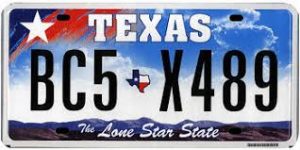Run a Texas Plate Search — Title, Accident, Mileage & Lien Checks
With over 25 million registered vehicles, Texas ranks among the top states for vehicle ownership — and motor vehicle theft. Whether you’re buying in Houston, checking a Dallas listing, or inspecting a car in Austin, a vehicle history report helps you avoid title fraud, undisclosed damage, and odometer rollbacks; coastal (Gulf) counties show more flood-related brands, so check water-damaged cars.
VinAudit makes it easier to run a Texas license plate lookup using just the plate number and the state. Our vehicle history reports pull real-time data from the Texas DMV, NMVTIS, and trusted industry sources to help you make confident, informed decisions.
Texas License Plate Lookup: Key Benefits
A reverse license plate lookup in Texas is a fast, legal way to uncover vehicle history if the VIN is not available. Whether you’re buying from a private seller, checking a listing online, or verifying a car spotted on the road, VinAudit connects the plate to the VIN and retrieves key data from NMVTIS, the Texas DMV, and other trusted sources.
- Avoid title fraud: detect salvage, rebuilt, or flood-damaged titles before purchase.
- Spot odometer issues: identify mileage anomalies and rollback indicators in historical records.
- Confirm theft & recovery: see reported stolen or recovered events tied to the vehicle.
- Estimate value: quick Texas-specific market guidance to help pricing and negotiations.
Texas License Plate Rules and DMV Overview
The Texas Department of Motor Vehicles (TxDMV) is responsible for issuing and regulating license plates, titles, and vehicle registrations. It also provides services like registration renewals, title transfers, license plate replacements, and personalized plate orders — available online or at local county tax offices.

| Issuing Agency | Texas Department of Motor Vehicles (TxDMV) |
| Plate Format | 7-character format (e.g., ABC-1234) |
| Plate Requirements | Front and rear plates required for most vehicles |
| Plate Types | Standard, specialty, personalized, military, and charity plates |
| Replacement & Transfer | Replacements available at county tax offices; transfers allowed for same-owner vehicles |
DPPA & privacy in Texas
License plate lookups must comply with the federal Driver’s Privacy Protection Act (DPPA) and Texas’s Motor Vehicle Records Disclosure Act (Transportation Code, Chapter 730). VinAudit provides vehicle history only—not the registered owner’s name, address, phone, or other personally identifying information. Use reports only for lawful, permitted purposes such as evaluating a vehicle before purchase, verifying title/brand status, confirming odometer history, or preventing fraud.
How Texas License Plate Lookup Works
How the plate-to-VIN lookup delivers a report — three simple steps:
- Enter the plate number & pick Texas. We search official records and match the plate to the vehicle’s VIN.
- Pull the history. Title brands, accident & insurance events, odometer entries, liens, and theft records are retrieved.
- Review & act. Use the report to negotiate, request seller paperwork, or confirm title status with the county tax office.
Do you have the VIN? Check your VIN for free and decide whether you want a full report for a fraction of the price of Carfax and other reports.
Run a VIN CheckUse Cases for Texas License Plate Search
Here are quick scenarios showing how consumers, dealers, and platforms use Texas plate-to-VIN lookups or plate number search to reduce risk and speed up decision-making.
Consumers Buying a used car? Run the plate to confirm title brands, accident history, and mileage trends. Check Plate Now
Frequently Asked Questions (FAQs)
Is it legal to run a license plate search in Texas?
How does a plate lookup differ from a VIN search in Texas?
Can I see who owns a car through a Texas plate lookup?
Is the information from a Texas plate search accurate and up to date?
Can I run a Texas license plate lookup without the VIN?
